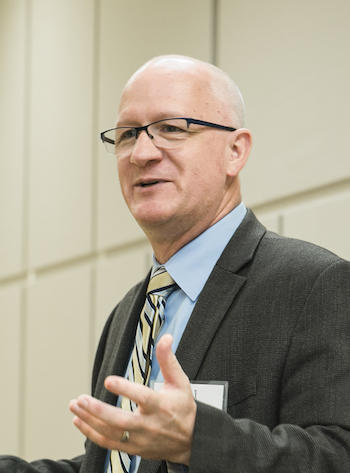George Mason University’s Cynthia Lum and David B. Wilson were recently named Fellows by the American Society of Criminology, and will be officially honored at the organization’s annual meeting in Chicago in November.
ASC Fellows are recognized for their scholarly contributions to criminology and distinction in the discipline, according to the organization’s website. Examples of contributions may include innovations in public policy as well as enhancing diversity, equity and inclusion within the Society and the field of criminology. In addition, a Fellow must have made a significant contribution to the field through the career development of other criminologists and/or through organizational activities within the American Society of Criminology.
“I’m incredibly humbled and honored to be named a fellow of the American Society of Criminology, and especially to receive this recognition alongside my wonderful colleague Dave Wilson,” said Lum, who is the director of Mason’s Center for Evidence-Based Crime Policy.
Lum and Wilson join David Weisburd and Stephen D. Mastrofski from Mason’s Department of Criminology, Law and Society as Fellows in the organization.
“Congratulations to Cynthia and Dave on this major accomplishment,” said James Willis, the department chair. “They make us proud. Our department now has four Fellows in the American Society of Criminology, which is remarkable and testament to its rise as a top-ranked department producing cutting-edge research and first-class undergraduate and graduate students.”
A former Baltimore City police officer, Lum is a leading authority on evidence-based policing, which advocates research, evaluation and scientific processes in law enforcement policymaking and practice. She has written extensively about patrol operations and police crime prevention activities, as well as police use of technology such as body cameras. In 2020, Lum received the Virginia State Council for Higher Education Outstanding Faculty Award.
Wilson's work focuses on advancing scientific knowledge on how to change offender behavior or prevent individuals from committing crimes to help minimize harm and advance justice.
Examples of programs that he has examined include juvenile curfews, restorative-justice and trauma-informed programs for delinquent youth, juvenile and adult drug courts, and police-worn body cameras. Much of his work applies the statistical methods of meta-analysis to synthesis evidence from rigorous social science research. Wilson is a recognized expert on these methods and has contributed to their advancement.


